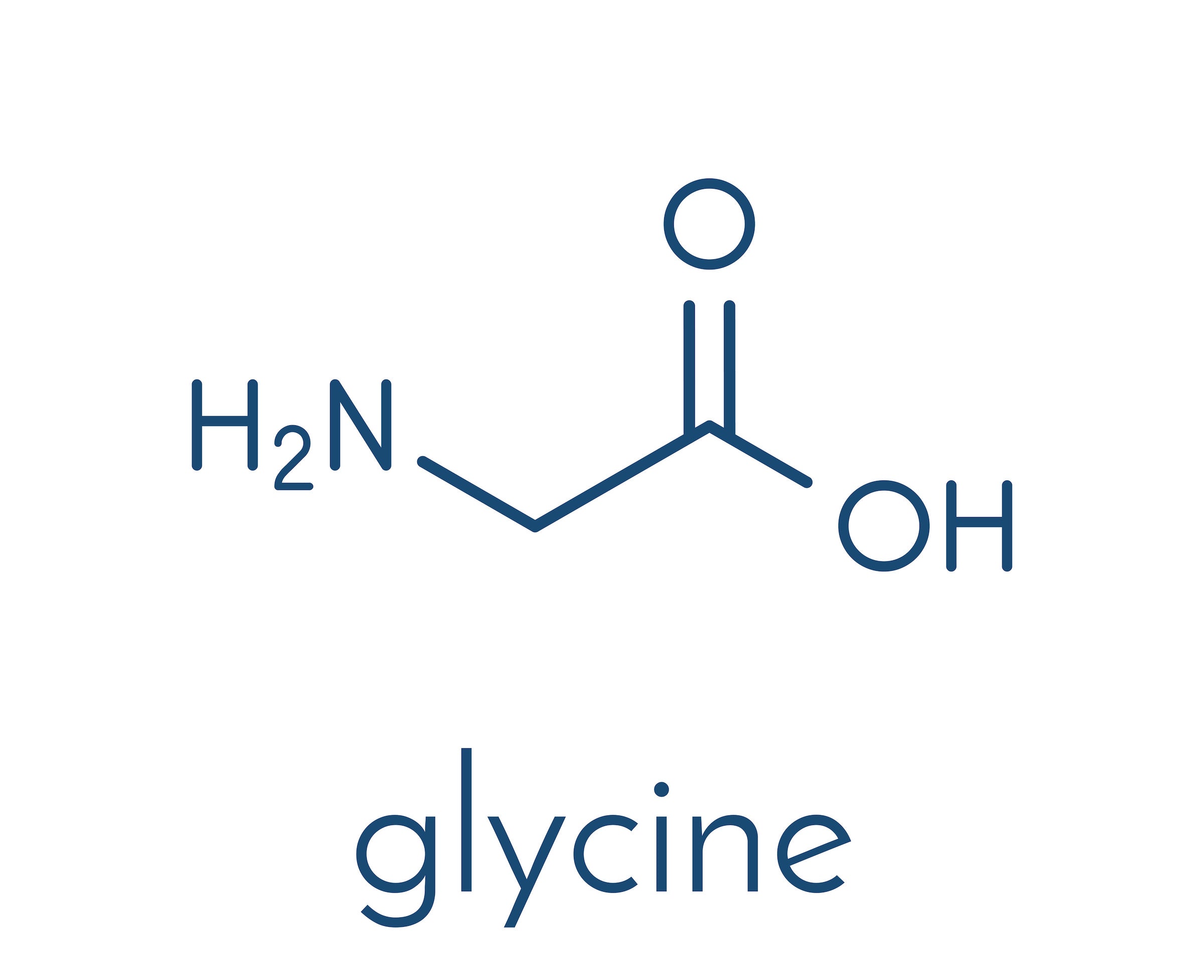Common uses: Sleep support, cognitive function, mood regulation
Traditional Use:
Glycine, a non-essential amino acid, has a long history of use in traditional medicine systems. While it may not have specific traditional uses like botanicals, glycine has been recognized for its importance in overall health and well-being. It is naturally found in protein-rich foods and serves as a building block for many essential compounds in the body.
Research Overview:
Scientific research has uncovered various benefits of glycine and its impact on different aspects of health. One of its well-known uses is for sleep support. Glycine has been shown to have calming effects on the nervous system, helping to improve sleep quality and reduce the time it takes to fall asleep. It may also help regulate the body's internal clock, supporting healthy circadian rhythms.
In addition to sleep support, glycine plays a crucial role in cognitive function. It acts as a neurotransmitter in the brain, facilitating communication between nerve cells and contributing to memory, learning, and attention. Research suggests that glycine supplementation may enhance cognitive performance and support mental focus.
Furthermore, glycine is involved in mood regulation. It serves as a precursor for the production of serotonin, a neurotransmitter that plays a key role in mood regulation and emotional well-being. Adequate glycine levels are important for maintaining balanced mood and emotional stability.
Interesting Fact: Did you know that glycine is the smallest and simplest amino acid found in proteins? Its small size allows it to play unique roles in various physiological processes, including serving as a neurotransmitter and supporting protein synthesis.
Sources:
- Bannai M, Kawai N, Ono K, Nakahara K, Murakami N. The Effects of Glycine on Subjective Daytime Performance in Partially Sleep-Restricted Healthy Volunteers. Front Neurol. 2012;3:61.
- Yehuda S, Rabinovitz S, Mostofsky DI. Essential fatty acids and sleep: Mini-review and hypothesis. Med Hypotheses. 2005;65(2):278-281.
- Ngo HVT, Martinetz T, Born J, Mölle M. Auditory closed-loop stimulation of the sleep slow oscillation enhances memory. Neuron. 2013;78(3):545-553.



